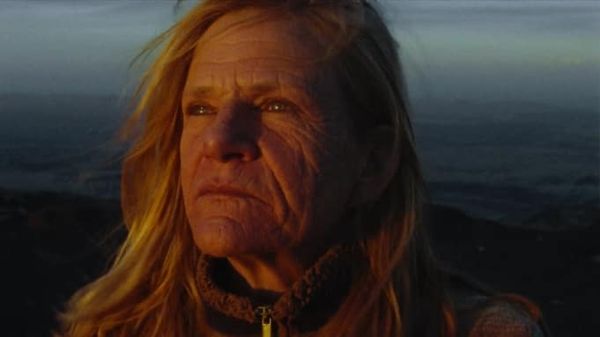Eye For Film >> Movies >> A Love Song (2022) Film Review
A Love Song
Reviewed by: Amber Wilkinson

Love songs, silly or otherwise, come in all shapes and sizes, and this one from debut director Max Walker-Silverman is a tender ballad to the rediscovery of possibility. The film played in the Next section at Sundance, although like many of the films there it could easily have been in the main competition, thanks not least to a soulful and magnetic central performance from Dale Dickey and, later, Wes Studi, offering an finessed and eloquent counterpoint. Dickey has already got some excellent films on her CV, including Winter's Bone, Leave No Trace and Hell And High Water, while Studi's includes Dances With Wolves and Avatar but here they both get the chance to take centre-stage and don’t some much throw themselves into their characters as hug them into life with a flickering warmth.
There's a quiet to the start of the film that draws us in, as we see Faye (Dickey) going about her business in a caravan trailer that could have driven straight out of Nomadland – although you could argue Dickey’s face fits the bill much more than Frances McDormand’s. It’s not a slight to say she and Studi have features that look as though they have lived life to the full, without a cosmetic surgeon’s nipping and tucking, and which slot perfectly into the golden-lit landscape of the American mid-west.
Marking "today" at a random point on an empty calendar, Faye goes about her business, baiting crayfish pots, eating breakfast and listening to the radio which is her chief companion. There's a minimalism to the set-up and to Faye's life too, her shelves containing just two books - A Field Guide to Birds, from which she has learned to identify them by their song on awakening, and A Field Guide to Stars, which she uses at night.
The simplicity is contrasted with emotional complexity, as we gradually learn she has come to this place from her childhood to meet, if he shows up, an old sort-of sweetheart (Studi), following the death of both of their partners.
Walker-Silverman is in no hurry to reach that encounter and he makes slipping into the rhythms of Faye's day a thing of gentle joy. He also injects a note of sweet absurdism via a posse of brothers and their little sister (Marty Grace Dennis) – the clan’s official spokeswoman – who turn up like a chorus at various points of the film to offer a spot of comic relief. The humour is in counterpoint to the task they have planned, which is to disinter their father – currently buried beneath Faye’s van – and move him to away from a newly arrived oil derrick. It’s entirely fitting for a film that is largely about what lies beneath. Dickey’s performance has the detail of a fragile detail of a Faberge egg, anticipation mixed with wariness, hope tempered by ongoing grief, loneliness that can, in its own way, provide comfortable companionship. When they meet, these lonely hearts harmonise in a fashion that avoids cliché and finds unexpected grace notes. Your heart will beat in tune.
Reviewed on: 09 Feb 2022
















